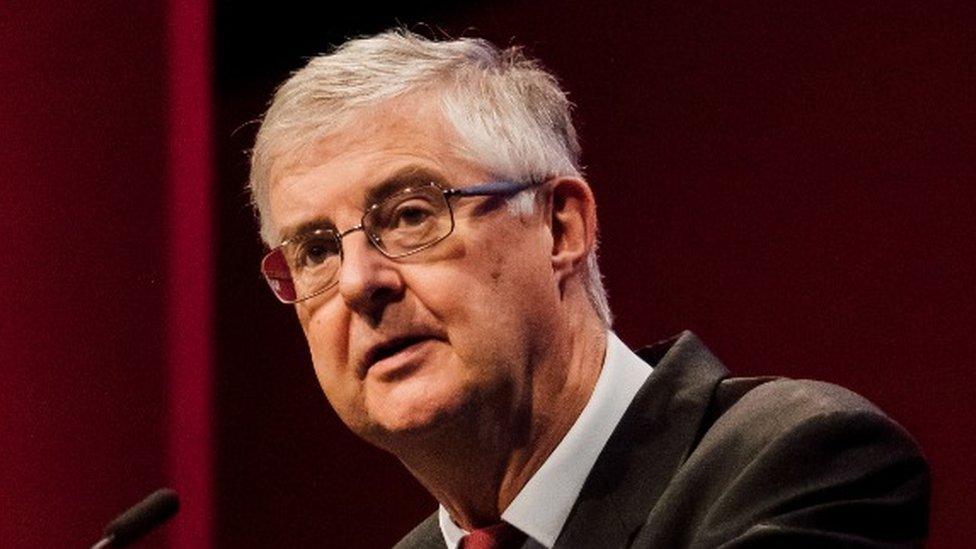Ukraine crisis: Wales ready to welcome 1,000 refugees
- Published
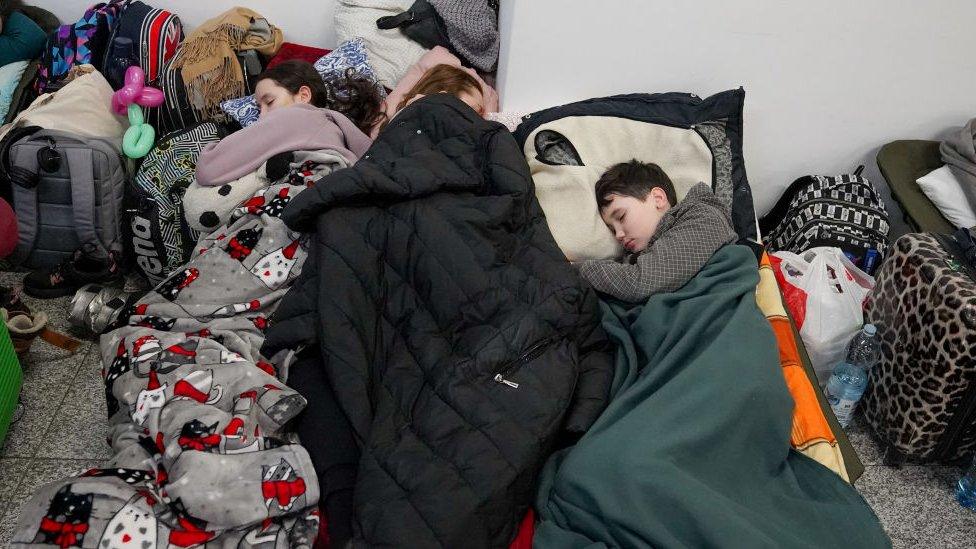
There is no sign of any end to the war in Ukraine, now in its 18th day
Wales is planning to look after at least 1,000 Ukrainian refugees, First Minister Mark Drakeford has said.
Mr Drakeford said it was impossible to put a total figure on the number of refugees Wales could take.
But he said he wants Wales to be a "nation of sanctuary" and plans were now in place to take the "first wave".
He and Scotland's First Minister Nicola Sturgeon have pledged to become "super sponsors" to get Ukrainians settled and cared for faster in the two countries.
Mr Drakeford told BBC Wales' Politics Wales programme it was "really impossible at this stage" to say exactly how many refugees could come to Wales.
"We know that most people fleeing the awful scenes in Ukraine will want to stay as close as they can to the homes that they have fled from," he said.
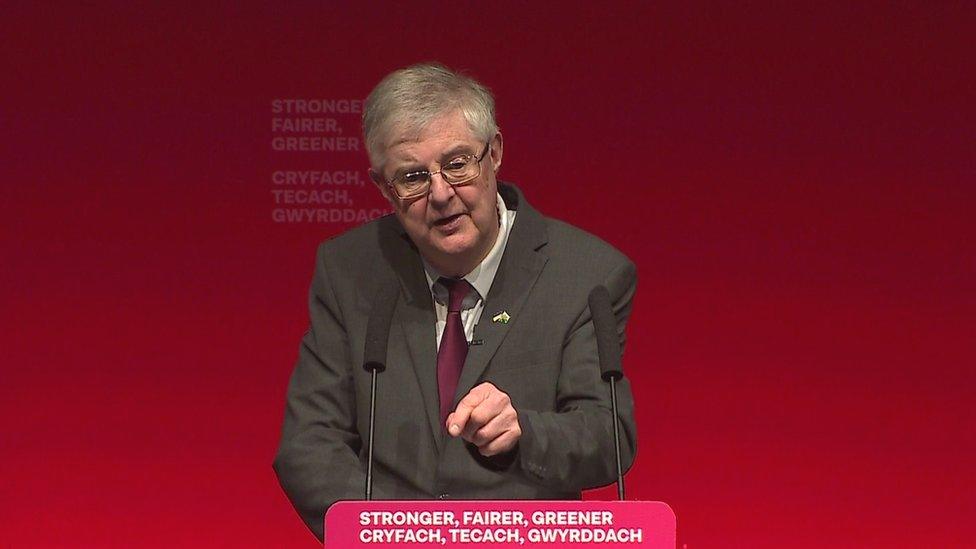
Mark Drakeford told Welsh Labour's party conference there must be "no more prevarication" on Ukrainian refugees
"People will want to settle in Poland, in Moldova, in those places that are as close as can be," Mr Drakeford said.
"So at this point, I don't think anybody can have a precise idea of how many people will want to come to the United Kingdom and where these people will be settled.
"But 1,000 is our best estimate based on the work that we've done with Syrian and Afghan refugees, and that will be our planning assumption for a first wave of people who may come to settle in Wales."
Speaking from the Welsh Labour conference venue In Llandudno, the first minister said the Welsh government had been talking to councils about how they can help.
'Great deal of practical work happening'
Discussions are also being held with the private accommodation sector and universities about what housing they could provide, he added.
"Very rapidly, a great deal of practical work is going on. So that we have the best picture we can have of what the potential sources of accommodation could be, and then to be able to offer the best match between the needs of people who will come to Wales and our ability to meet those needs."
Councillor James Jamieson, chairman of the Local Government Association, said councils were "ready to help new arrivals".
"Councils will be central in helping families settle into their communities and access public services, including schools, public health and other support, including access to trauma counselling," he said.
Mr Drakeford has also, along with Scotland's first minister, written to the UK government to confirm their commitment in contributing to its community sponsorship scheme as "super sponsors".
Shadow social justice minister for the Conservatives, Mark Isherwood, said he was "pleased the Welsh government wants to play its part", but added "rhetoric has to be matched by action".
"These refugees, fleeing an unjust war on their homeland, need homes, healthcare, jobs, and education. The Labour government should be allocating resources for this, but we still have no details," he said.
The UK government announced on Sunday that households would be offered £350 a month to open their homes to refugees.


With this offer, the Welsh and Scottish governments are trying to do two main things.
They want to make the process speedier - both first ministers have criticised how slowly visas are being granted.
Secondly, they want to build a structure around this scheme to try to streamline the many logistical complexities.
Volunteers will need background checks to make sure they're safe for vulnerable people to live with.
Those same volunteers will also need support with the language barrier and signposting to services that can help traumatised people settle, as well as more day-to-day matters like arranging school places.
But in the letter, Mark Drakeford and Nicola Sturgeon repeat their view that the UK government should waive visa requirements and adopt the approach of EU countries who are permitting three-year residencies for refugees.

Call to reduce nuclear weapons
The first minister also called on governments to "redouble their efforts" to reduce the number of nuclear weapons.
At the start of his country's invasion of Ukraine, President Putin put Russia's nuclear forces on "special" alert.
Despite abstaining on a Plaid Cymru Senedd vote on the issue earlier this week, Mark Drakeford reaffirmed his long-term opposition to nuclear weapons.
He said: "I think anybody sensible looking at the world we are in, knowing that President Putin has nuclear weapons in his hands, would want to see a world in which the reduction in nuclear weapons across the world ought to be an effort that any sensible government would wish to pursue."
But it should be done "in concert with other nations" rather than unilaterally by the UK government, he said.
"Ground was lost in the last decade on efforts that had gone on across the world to reduce the volume of nuclear weapons... We need to make the world a safer place," he said.
UK Labour, under Sir Keir Starmer's leadership, has said the party's support for keeping the UK's nuclear weapons is "non-negotiable".


- Published12 March 2022
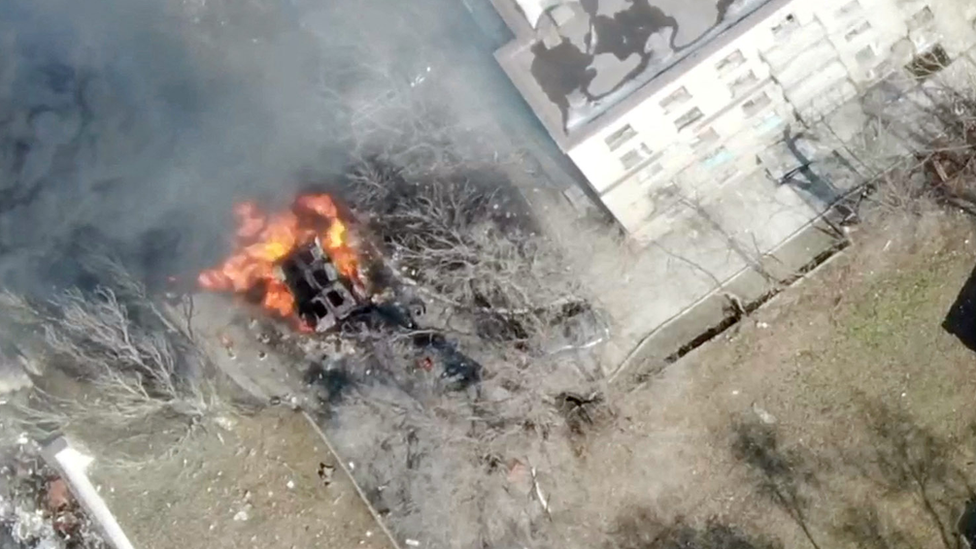
- Published13 March 2022
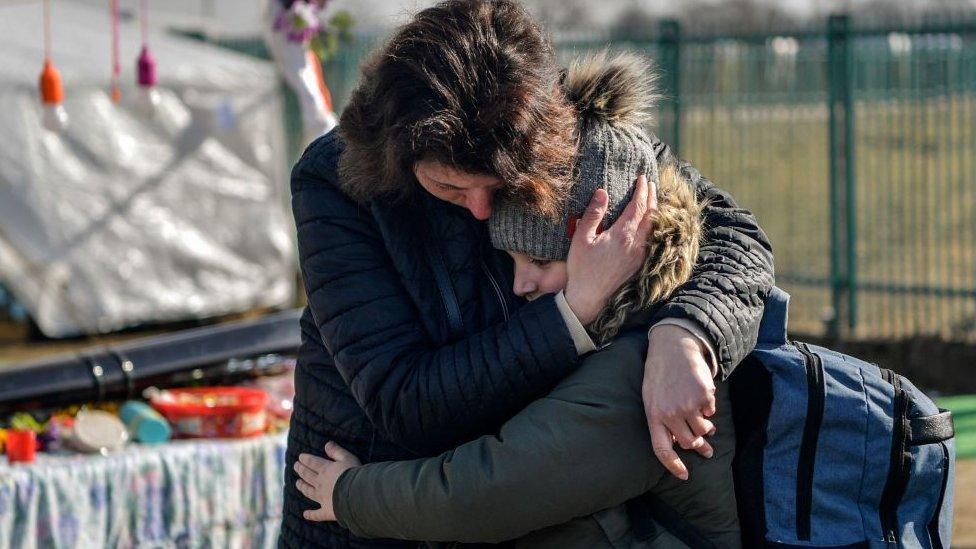
- Published27 September 2021
